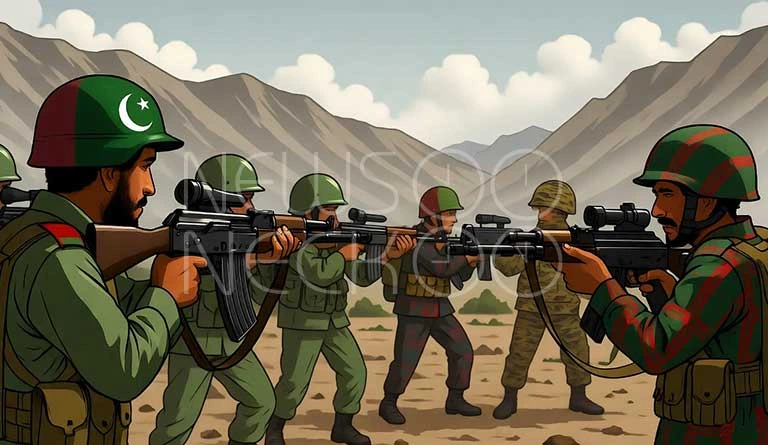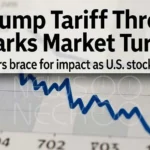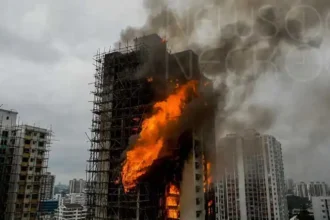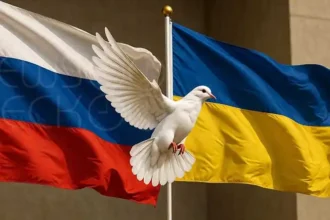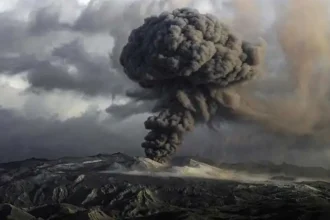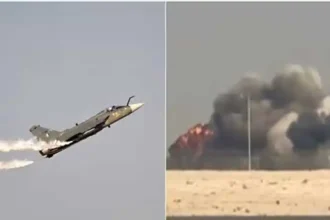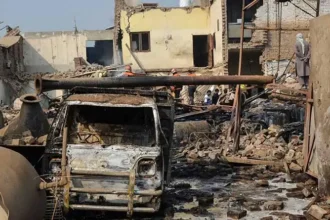The Border Erupts: How a Dangerous New Chapter in an Old Conflict Began
The echoes of artillery fire replaced the usual quiet of the border night. In the darkness of Saturday, October 11, the jagged frontier between Afghanistan and Pakistan became a stage for open warfare. Afghan Taliban forces, in a coordinated and forceful response, initiated heavy armed clashes against Pakistani military positions, transforming long-simmering tensions into a violent confrontation.
This was not a minor skirmish. From the rocky terrain of Kunar to the southern plains of Helmand, the fighting stretched across provinces, a clear and deliberate retaliation for what Afghanistan claims were unauthorized violations of its sovereignty. The Afghan military stated plainly that this was retaliation for air strikes carried out by the Pakistani army, marking a significant and dangerous escalation between the two neighbors.
The Trigger: Airstrikes and Accusations
The fuse for this conflict was lit two days earlier, on October 9, when the night sky over Kabul was broken by the sound of explosions. Similar blasts were reported in the eastern province of Paktika. The Taliban government swiftly pointed the finger at Pakistan, accusing its neighbor of a brazen breach of international law.
While Islamabad did not officially confirm it conducted the airstrikes, its rhetoric was uncompromising. The Pakistani government called on Kabul to stop harboring the Pakistani Taliban (TTP), a militant group accused of killing hundreds of Pakistani soldiers since 2021. This blame game lies at the heart of a crisis that has been building for years. Pakistan asserts that Afghan soil is used as a safe haven for militants launching attacks into its territory, an accusation the Taliban authorities consistently deny.
An Old Wound Reopened
The conflict is rooted in a history that predates the modern governments of both nations. At its center is the Durand Line, the 1,640-mile border established during British rule in India, which Afghanistan has never formally recognized. This disputed frontier has long been a source of friction, and the current violence signals a collapse of the already strained relations between Islamabad and the Taliban government in Kabul.
Paradoxically, the Afghan Taliban and the Pakistani Taliban (TTP) are separate entities, yet they share a deep ideological bond. Since the Afghan Taliban seized power in 2021 following the withdrawal of U.S.-led troops, Pakistan has seen a sharp surge in militant violence. Islamabad argues that the change in Kabul empowered the TTP, allowing them to operate with greater impunity from across the border.
The Fight Itself
The engagement on Saturday was widespread and intense. Officials from the Afghan provinces of Kunar, Nangarhar, Paktia, Khost, and Helmand—all lining the contentious border—confirmed that clashes were ongoing. The 201st Khalid bin Walid Army Corps of the Taliban claimed responsibility for the offensive, marking the first time the group has officially acknowledged an attack on Pakistan.
The fighting was not confined to small-arms fire. It quickly escalated into an exchange of heavy artillery . A senior official in Pakistan’s Khyber-Pakhtunkhwa province described a rapid escalation: “We fired first light and then heavy artillery at four points along the border” . Pakistani forces reportedly shot down three Afghan quadcopters that were suspected of carrying explosives . Notably, Taliban fighters were said to be using captured U.S. military equipment, left behind by the former Afghan government army in 2021, deploying it now on a large scale against Pakistan.
The human cost of the battle began to emerge. Initial reports indicated that at least two Pakistani soldiers and one civilian were killed, with up to ten military personnel and civilians wounded . Taliban casualties were also reported, though not officially acknowledged by the group.
You Might Like it: A fragile peace finds its moment in the Middle East War
A Wider Regional Crisis
The border fighting is more than a bilateral dispute; it has ripple effects that extend across the region. The clashes coincided with a visit by Afghanistan’s Foreign Minister, Mawlawi Amir Khan Muttaqi, to India . The two nations issued a joint statement that expressed appreciation for Afghanistan’s condemnation of a recent attack in Indian-administered Jammu and Kashmir—a move that immediately drew a sharp protest from Pakistan, which considers Kashmir a disputed territory.
This diplomatic maneuver highlights how the Afghanistan-Pakistan conflict is becoming entangled in the broader geopolitical rivalries of South Asia. As Pakistan feels pressure from one side, it faces diplomatic challenges from another, complicating any path toward de-escalation.
A Cycle of Violence with No End in Sight
The open warfare on the border represents a tragic breakdown of what many had hoped would be a new era of peace after decades of conflict in Afghanistan. Instead, the region is trapped in a cycle of violence: militant attacks inside Pakistan prompt cross-border airstrikes from Pakistan, which in turn provoke direct military retaliation from the Afghan Taliban.
Pakistan defends its actions as necessary self-defense against an existential threat from militants. Afghanistan, having just ended one foreign occupation, is now facing what it perceives as military aggression from a neighbor, and has vowed to defend its sovereignty. This fundamental disconnect creates a deadlock that seems immune to diplomacy.
The heavy clashes of October 11 are not an isolated incident. They are the paroxysm of a deep-seated and volatile conflict. As both sides dig in, the prospects for peace appear to be receding over the horizon, replaced by the ominous glow of artillery fire along a disputed border. The people living in the shadow of this conflict are now left to wonder if this is the start of a new, sustained war, or merely the most violent chapter in a long and troubled history that is still being written.
Author: Yasir Khan
Date: 12 Oct, 2025
For More Updates, Visit Newsneck


